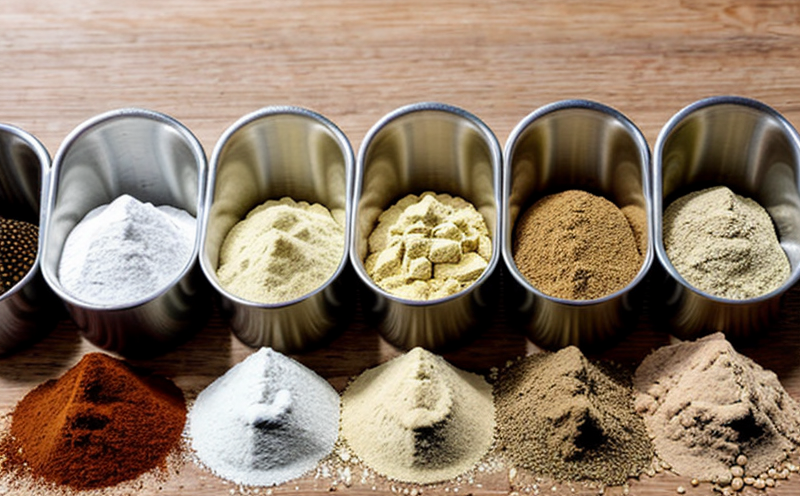EN 20048 Selenium Quantification in Dairy Supplements
The quantification of selenium in dairy supplements is a critical process to ensure product safety, efficacy, and compliance with regulatory standards. This service utilizes the European Standard EN 20048, which provides precise methods for determining selenium content in various feed additives used in the production of dairy products.
Selenium plays a vital role in animal nutrition as an essential trace element that supports immune function, reproduction, and thyroid health. Ensuring accurate selenium levels is paramount to prevent deficiencies or toxicities that can affect milk quality, production efficiency, and animal welfare. This service ensures that the selenium content meets the specified guidelines set by EN 20048.
The process involves a series of rigorous steps beginning with proper sample preparation, which includes homogenization and digestion to ensure all selenium compounds are released into solution. Following this, instrumental methods such as atomic absorption spectrophotometry (AAS) or inductively coupled plasma mass spectrometry (ICP-MS) are used for precise quantification.
The analytical results are then reported against the reference method provided by EN 20048. This ensures that clients receive accurate and reliable data, which is crucial for maintaining product quality and compliance with international standards such as ISO 9372:2015 and AOAC International methods.
The importance of this service extends beyond the laboratory to influence decision-making processes in dairy farms and feed manufacturing. Accurate selenium quantification helps in optimizing dietary supplements, enhancing animal performance, and ensuring product safety for consumers.
Industry Applications
| Application Area | Description |
|---|---|
| Dairy Farm Management | Optimizing selenium supplementation to improve milk yield and quality. |
| R&D in Animal Nutrition | Evaluating the efficacy of new selenium-containing feed additives. |
| Feed Manufacturing Compliance | Avoiding non-compliance with regulations regarding selenium content. |
| Animal Welfare | Ensuring that animals receive adequate selenium levels for optimal health. |
In addition to the table, it is important to note that this service also supports compliance with international standards such as ISO 9372:2015 and AOAC International methods. This ensures that clients can trust the accuracy of their selenium quantification results.
Another application involves monitoring environmental factors affecting selenium intake by dairy animals, which is crucial for sustainable farming practices. Understanding these impacts helps in formulating feeds that meet both nutritional requirements and environmental sustainability goals.
Quality and Reliability Assurance
The service adheres to strict quality assurance protocols to ensure reliability of results. This includes regular calibration of equipment, validation of analytical methods against EN 20048, and participation in proficiency testing programs.
Our laboratory is accredited under ISO/IEC 17025:2017, ensuring that all tests are conducted according to the highest standards. We employ highly trained and certified personnel who are proficient in using state-of-the-art instrumentation for selenium quantification.
The use of advanced techniques like ICP-MS ensures minimal detection limits, allowing us to accurately measure even trace amounts of selenium. This precision is critical for ensuring that dairy supplements meet the specified guidelines set by EN 20048 and other relevant standards.
We also provide detailed reports that include all necessary parameters such as sample identification, method used, results, and compliance status. These comprehensive reports aid in making informed decisions about feed formulations and supplementation strategies.
Customer Impact and Satisfaction
- Enhanced product quality through accurate selenium quantification.
- Avoidance of regulatory penalties for non-compliance with standards.
- Increased trust in dairy products from consumers, leading to brand loyalty.
- Improved animal health and welfare resulting in higher productivity.





